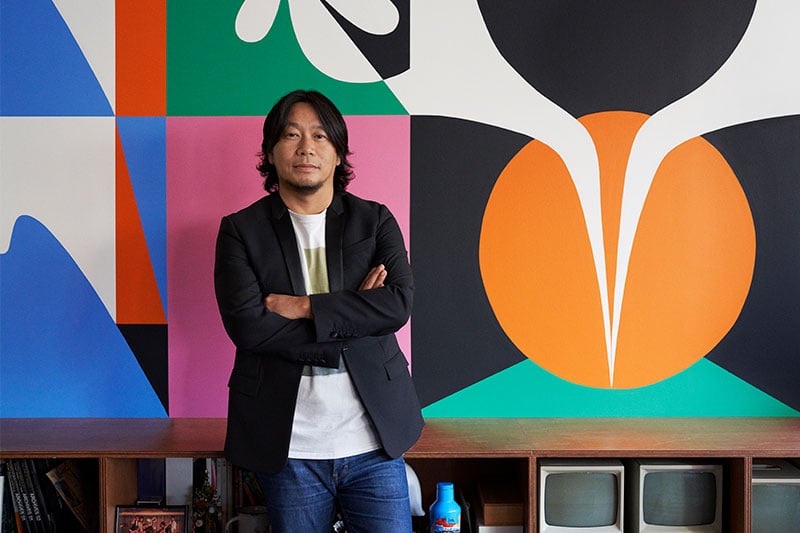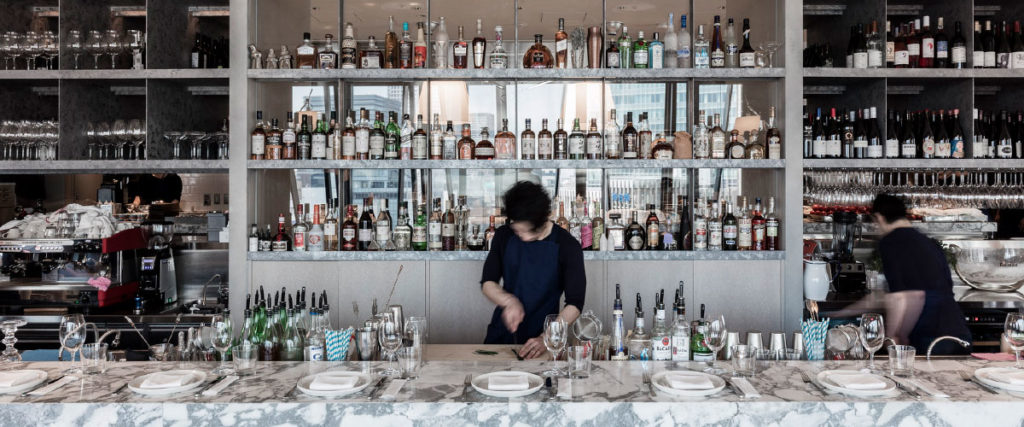With over 20 years of experience launching brands in Japan, creative visionary Sadahiro Nakamura shares his insider’s insights on the marketing tips to make a company a success.
Sadahiro Nakamura, founder and CEO of Transit General Office, didn’t start out as an entrepreneur. Born in Tokyo in 1971, he began his career at prominent department store Isetan, but quit at the age of 30 in 2001, following in his parents’ footsteps to launch his own business. Sadahiro went on to establish some of Tokyo’s biggest F&B foreign imports, from shaved ice dessert phenomenon Ice Monster to luxury F&B offshoot Dunhill Bar, modern Mediterranean dining The Apollo to Hawaii-based Vietnamese restaurant The Pig & the Lady. Having built a reputation for himself for pioneering Japan’s international cafe and breakfast culture with Sign, which has since established itself as a successful cafe chain in Tokyo, he’s now looking to play a key role in leading Tokyo through another cultural revolution. “Let’s establish Tokyo as a global, cultural city like New York, London or Paris,” he says of his vision. “In order to do that, we have to build a strong Tokyo brand identity.” A self-described cultural engineer, he’s navigating the nuances of Japanese culture, tapping into its rich cultural past to create a forward-looking capital city with a unique offering. Hive Life sat down with him to learn the secrets of his trade – and the strategies he’s used to help brands stand out from the crowd.

#1
Design a lifestyle, not a fad, to ensure brand longevity
It’s easy to build hype around new concepts, which often bring in a flurry of customers, but when it comes to creating a business that will stand the test of time, it’s important to integrate your brand successfully into your customers’ lifestyles.
“We love new trends, new pop-ups, and we become very, very passionate, but after a few months, that passion dies down,” Sadahiro explains. “So when we work with a business or a brand, we have to make that into a culture and integrate it into people’s lifestyles in Japan.”
Taking Australian-based Greek restaurant The Apollo as an example, when Transit General Office first launched the brand in Tokyo, going to a restaurant where dishes are shared wasn’t a common part of Japanese culture. Most customers preferred a dish of their own, Sadahiro relates. However, when they opened The Apollo, they promoted a unique experience derived from Greek culture: the food was served in large portions and is meant to be shared. Now an award-winning restaurant, the restaurant is a well-loved haunt for big groups, family dinners and large social gatherings.
#2
Adapt your brand to accommodate an emerging Japanese identity
Reflecting on the last 20 years of his career, Sadahiro recalls, “At the time, we always looked up to Western culture – New York, London, Paris – and it was like, ‘What a cool, stylish culture and lifestyle.’ Japanese consumers had a complex that we weren’t as cool as Westerners or Western culture.”
However, as Japan has emerged onto the world stage with its highly developed economy, consumer tastes, too, have shifted to encompass a stronger sense of national identity. “Nowadays, we’re getting more and more tourists coming into Tokyo, including a lot of repeat tourists who love Japan. Rather, people are asking what it means to be from Tokyo.”
You might also like Gaijin Bank: Is it Time for Tokyo’s Workforce to Diversify?

#3
Don’t shy away from your competitors
It might seem paradoxical to launch a business in a highly competitive industry. However, “If there is no competition, nobody will talk about it,” Sadahiro explains. Having launched The Pig & The Lady, a Vietnamese-style restaurant, in Tokyo in 2019, Sadahiro explains how he leveraged the rise of Tokyo’s ethnic food culture to rope in more media coverage, piggybacking on consumer interest in ethnic foods. “By having competition, it creates a bigger wave and that wave can create a new culture altogether.”
#4
Stay true to your company vision
When it comes to establishing your brand in Japan, it’s crucial to establish cohesion between a company’s brand and its vision. A common mistake, according to Sadahiro, is when “a company’s brand identity weakens because the company’s vision has not been maintained. For some companies, maybe they’re not thinking about how this brand will influence or impact society, or they may not have a clear goal. Branding and vision go hand-in-hand.” Building from the ground up, the foundation of every campaign should stay true to the company’s core values.
Related Articles
Top 9 Coworking Spaces in Tokyo





